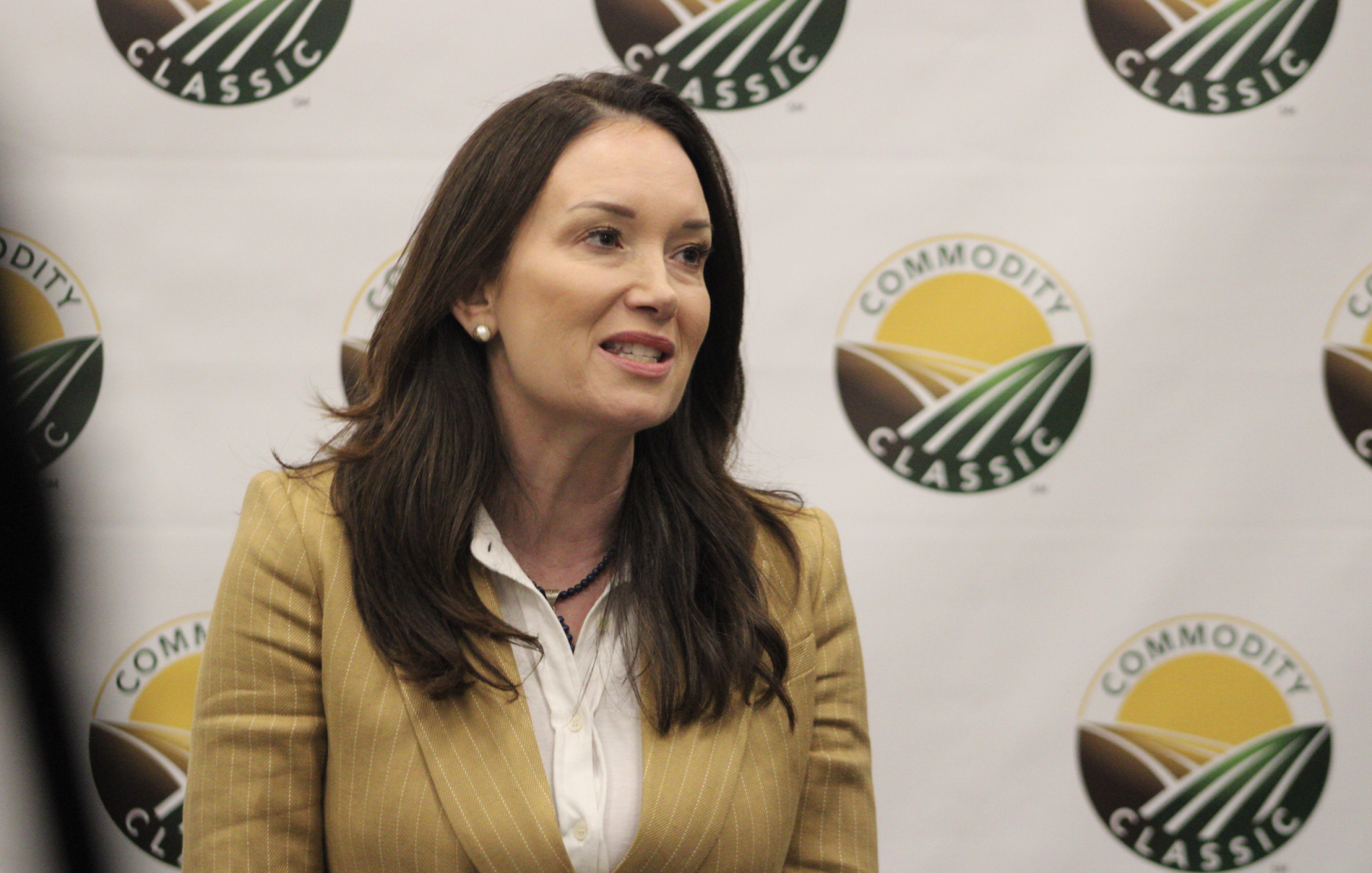USDA’s Brooke Rollins visits Denver to discuss agricultural challenges
Two weeks into her new role, President Donald Trump’s appointed Secretary of Agriculture Brooke Rollins visited Denver on Sunday to speak to farmers, ranchers and agriculture experts – briefly outlining how department cuts and tariffs will impact farmers and ranchers.
“It’s time we make it easier, not harder, for you to own, operate and expand your farms,” Rollins told farmers and agricultural experts during the Commodity Classic at the Colorado Convention Center. The event is entitled “Elevating Excellence in Agriculture,” and runs March 2-4.
During her visit with reporters, Rollins didn’t mention direct impacts to Colorado specifically. It is the fifth state the USDA secretary has visited since taking on the new role, according to Rollins herself.
USDA’s approach under Trump is to “serve farmers and raisers, not far left climate agenda’s or DEI programs,” Rollins said, adding she has had conversations with Trump on how to provide better agricultural resources, noting there was lost export revenue because of tariffs in Trump’s previous term.
Farmers and agriculture experts asked Rollins how Trump’s 25% additional tariff on imports from Canada and Mexico, and a 10% additional tariff on imports from China, would impact agricultural growth in the United States.
“Everything is on the table,” Rollins said.
“Everyone is very concerned,” she said. “So ensuring that we have all of the data, the information that we need, understanding the decisions that are being made, that are being currently made, what implications those have.”
Rollins noted the current trade deficit has reached $49 billion Sunday, saying “that is devastating to our American farmers and ranchers.”
Rollins touted that the department has terminated hundreds of Diversity, Equity and Inclusion-related contracts and canceled 978 DEI employee training courses so far under her watch, while rerouting those funds to “repurposing to helping our farmers and our ranchers.”
“This is an extremely aggressive effort that I fully support,” Rollins told reporters. “But in being so aggressive, there will be mistakes made, and there have been mistakes made.”
Colorado, as “one of the top agricultural states” in the nation, annually generates approximately $47 billion in agricultural economic activity, according to state officials in the legislature’s March 2024 “A Snapshot of Colorado Agriculture.”
The Centennial State comprises roughly 30 million acres of farmland, with approximately 36,000 different farm operations and more than 195,000 people employed in agriculture, the report shows.
Nationwide, Colorado ranks in the top 10 for production of cattle and calves, winter wheat, sheep and lambs, wool, alfalfa, potatoes, onions, apples, peaches and grapes, according to the state’s legislative report.
“I am planning to be very aggressive, with President Trump’s permission, go out into the world and look to expand our markets and also make capital easier, especially for our younger farmers, as we begin to build the next generation of our leaders in agriculture,” Rollins said.





